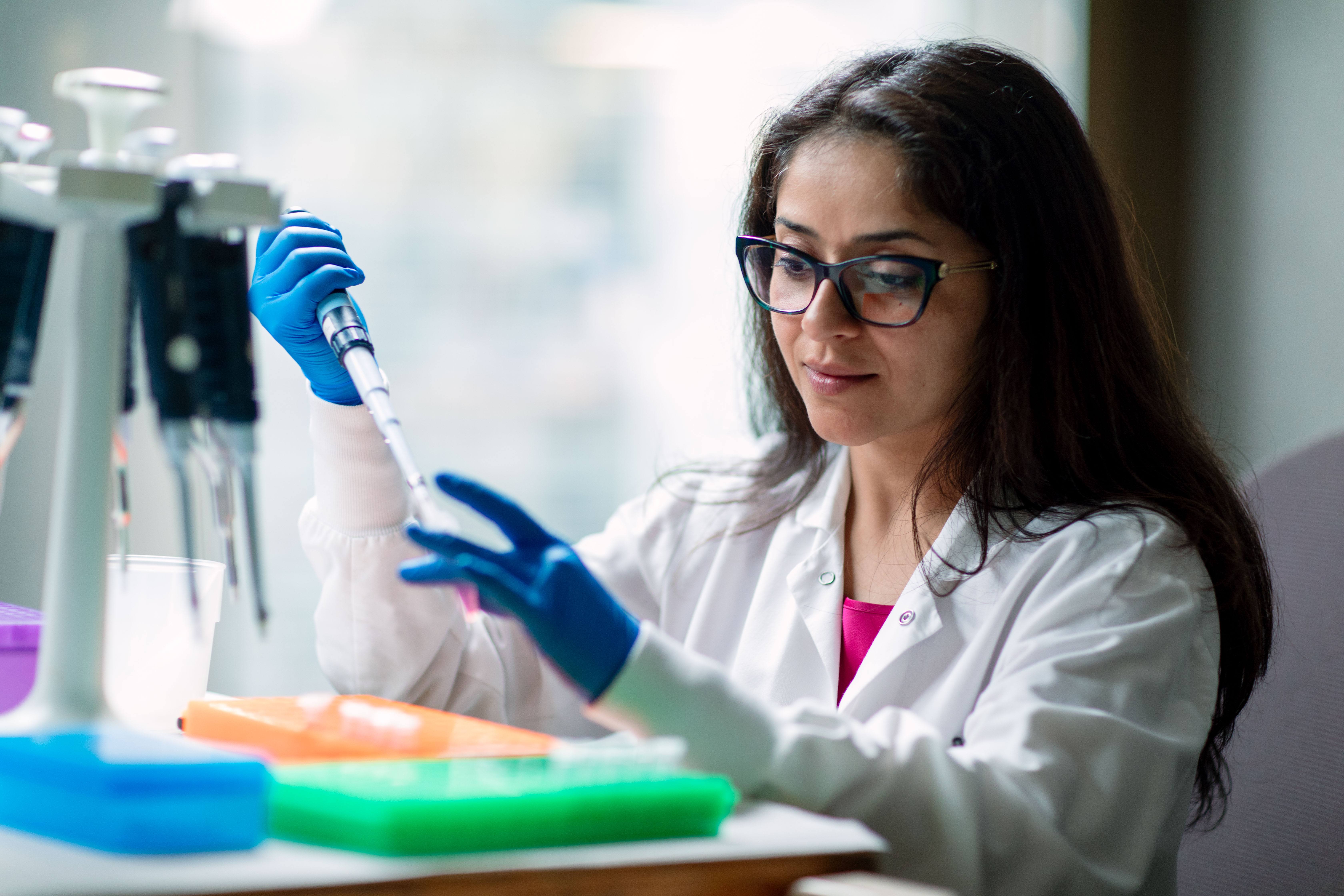-
Cancer
New Mayo Clinic studies to be presented at American Society of Hematology meeting

ORLANDO, Fla. — Mayo Clinic researchers will present findings at the American Society of Hematology Annual Meeting Dec. 7–10 in Orlando.
New Mayo Clinic studies to be presented include:
DNA analysis identifies elevated risk factor for myeloma in individuals of African ancestry
Embargoed until Monday, Dec. 9 at 6 p.m. EST
Multiple myeloma is a plasma cell cancer that is more common in patients of African American descent than of European American descent. Genetic research has shown that patients of more than 80% African ancestry are more likely to have a specific subtype of myeloma that features a genetic translocation, which is an exchange of genetic material between chromosomes.
Mayo Clinic researchers conducted DNA genotyping analysis of 898 patients who had evidence of a plasma cell disorder and had confirmed that the risk of a particular genetic translocation — the most common translocation linked to myeloma — is higher in patients of African ancestry.
The study worked with what is believed to be the largest group of African American people with an abnormal plasma cell clone along with uniformly collected information, including genotyping and ancestry data.
"Although our association study does not explain the specific mechanism that gives rise to the translocation, it is at least one step closer to help us understand why African Americans are more likely to develop myeloma, compared with European Americans," says first author Linda Baughn, Ph.D., a Mayo Clinic pathologist. "Perhaps one day we can fully understand all the risk factors for myeloma development and will be able to predict who will get this devastating malignancy."
Study identifies more precise assessment measures for patients newly diagnosed with chronic lymphocytic leukemia
Embargoed until Monday, Dec. 9 at 6 p.m. EST
Chronic lymphocytic leukemia is a type of cancer of the blood, and monoclonal B cell lymphocytosis is a precursor to chronic lymphocytic leukemia. Current practice is to use the chronic lymphocytic leukemia international prognostic index to assess newly diagnosed patients and assign them to four prognostic risk groups.
Mayo Clinic researchers evaluated two genetic scoring processes for their potential to improve on the chronic lymphocytic leukemia international prognostic index. One is the inherited polygenic risk score and the other is the tumor mutational load. The study found that the two genetic scores offer a more precise prognostic assessment.
"We were surprised that the two genetic scores were able to stratify risk beyond the international prognostic index with fewer than 200 cases examined," says first author Geffen Kleinstern, Ph.D., a researcher in the Mayo Clinic Department of Health Sciences Research. "This supports our hypothesis that the scores are significant predictors for CLL prognosis."
Researchers develop method to assess cancer-fighting cell therapy's effectiveness
Embargoed until Saturday, Dec. 7 at 8:30 a.m. EST
Chimeric antigen receptor therapy (CAR-T cell therapy) uses a patient's own immune cells to treat cancer. CAR-T cell therapy has been approved by the Food and Drug Administration for patients with acute leukemia and lymphoma. Clinical trials are underway to investigate treatment of other types of cancer, including solid tumors. But CAR-T cells can't always reach the tumor site and fail to kill cancer cells. And there can be a severe side effect called cytokine release syndrome.
Mayo Clinic researchers have developed a method that enables positron emission tomography (PET) to show CAR-T cell distribution in the body. For the CAR-T cells to be visible on a PET scan, the researchers engineered the cells to express a protein, sodium iodide symporter. When mice with leukemia received these engineered cells, researchers were able to clearly view and track the CAR-T cells with tomography.
"The ability to track CAR-T cells in patients and see where they go would revolutionize the field," says first author Reona Sakemura, M.D., Ph.D., a researcher in Mayo Clinic's T Cell Engineering Laboratory. "We developed this technology to track CAR-T cells and see if they actually reach the tumor sites. With this study, we were able to show that our technology is efficient in accomplishing that."
The process also may help predict severe toxicity resulting from CAR-T therapy, Dr. Sakemura says.
###
About Mayo Clinic
Mayo Clinic is a nonprofit organization committed to innovation in clinical practice, education and research, and providing compassion, expertise and answers to everyone who needs healing. Visit the Mayo Clinic News Network for additional Mayo Clinic news and An Inside Look at Mayo Clinic for more information about Mayo.
Media contact:
- Joe Dangor, Mayo Clinic Public Affairs, 507-284-5005, newsbureau@mayo.edu







